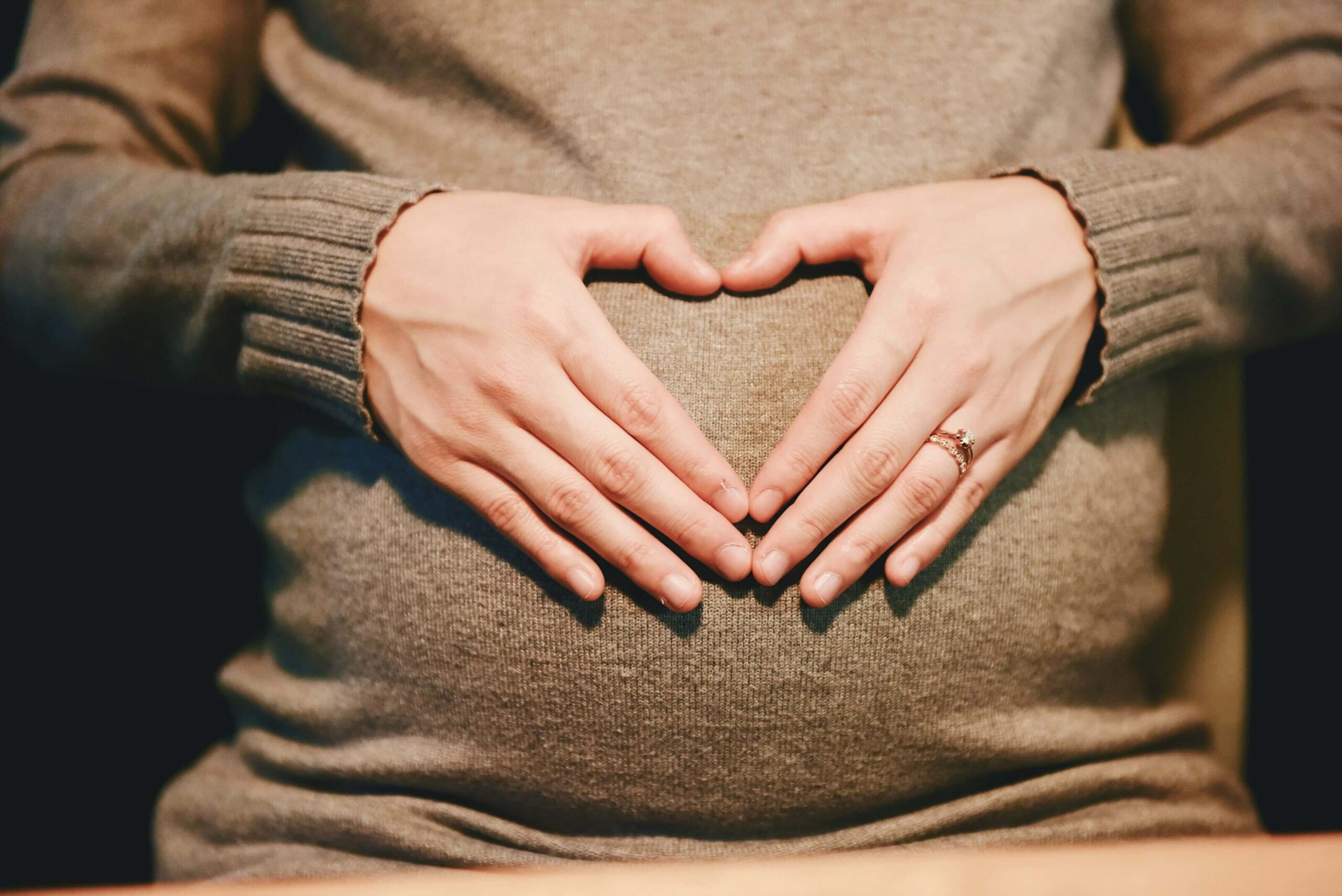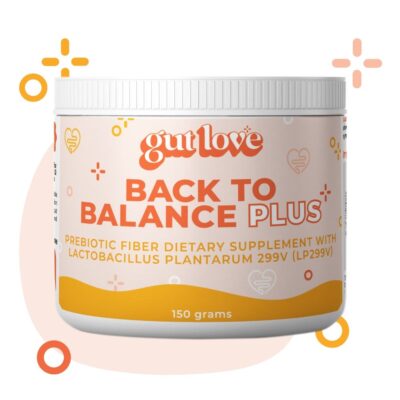Crohn’s disease is a chronic inflammatory bowel disease that affects a significant number of women worldwide. In fact, 1 in every 100 Americans are diagnosed with inflammatory bowel disease and a slightly larger percentage of those people are women. Experts estimate that more than 750,000 people in the U.S. have Crohn’s disease and approximately 6 to 8 million people globally.
While Crohn’s disease affects the digestive tract, it isn’t limited to just impacting the gut. Crohn’s disease can impact the whole body. As a result, women with Crohn’s disease who are considering pregnancy may understandably have valid concerns about how their IBD might impact their journey to motherhood, concerns about risk and even the genetic risk of passing it down.
Thankfully, over the last ten years especially we have gleaned many new understandings about IBD and pregnancy. With long-term studies like the PIANO study which gave us insights into which medications have the best safety profiles for pregnancy and new understandings about the immune system and microbiome – we are collectively in a better position to support a healthy pregnancy in IBD.
There are still many things to consider and plan for when it comes to prengancy in IBD. While many women with Crohn’s can have healthy pregnancies and deliver healthy babies, active disease can certainly increase the risk of certain complications. These include preterm birth, low birth weight, birth defects or early pregnancy loss.
It is essential for those with Crohn’s to work closely with their healthcare team to manage their condition effectively throughout their pregnancy journey. By taking the necessary steps to keep Crohn’s disease inflammation controlled during pregnancy and reduce the chances of malnutrition, we can improve their chances a healthy pregnancy and baby.
To learn more about managing Crohn’s disease during pregnancy, be sure to check out our post on crohn’s disease self-care. Also, check out our previous post on IBD and pregnancy.
Crohn’s Disease And Pregnancy
Throughout the last decade of working with Crohn’s patients, we have received many questions about pregnancy and prenatal care. Understandably, there is a lot to consider when you are already navigating the in’s and out’s of IBD.
Thankfully, there is a lot we can do as IBD patients to lessen our risk overall. When it comes to nutrition, the earlier you can plan ahead to reduce malnutrition and start pre-conception care – the better.
When it comes to nutrition for fertility, prenatal care and beyond – it’s important to start thinking about preparing yourself even as early as 6 months to a year prior to when you hope to conceive.
While the conversation seems to always center around the mother’s health choices – when it comes to creating the best odds for baby and the mother’s health we need to consider the health of both the egg and sperm.
This year we’ve hosted several experts on our podcast and YouTube that discuss this in depth.
Can You Get Pregnant With Crohn’s
It might surprise you to know that even though Crohn’s disease seems to impact everything under the sun – fertility odds don’t seem to be that much different.
Infertility rates are between 3-14% with Crohn’s disease which is pretty close to what infertility rates are for the general population. However, those with Crohn’s disease are at higher risk for pre-term and cescarian delivery.
Due to the widespread impact of Crohn’s disease inflammation, your gastroenterologist will usually recommend you first get a flare under control before trying to get pregnant for safety. If you become pregnant while in a flare, the main goal will be to get the flare under control as best as possible.
How Does Crohn’s Disease Affect Pregnancy
Understandably, those with IBD often have very valid concerns and hesitations around pregnancy. However, some concerns are sometimes based on misconceptions perpetuated on forums and the blog world.
One common concern is the fear of passing down Crohn’s to their children. Thankfully, the odds of passing down IBD if only one partner has IBD are only 4-9% which is fairly low. If both partners have IBD, the odds of having a child with IBD goes up to 30%.
However, there are some important things to consider focusing on if you are pregnant or planning on a pregnancy.
You May Need to Adjust Medications
The first step when becoming pregnant or planning a pregnancy would be to discuss with your gastroenterologist your plans. This may seem obvious, but it is common for this to be left out of the conversation either due to embarrassment or because other concerns take higher priority.
Your gastroenterologist will want to adjust your medications or change your medications to support your journey. Thanks to the PIANO study, we now have a lot more information on what medications are safe during pregnancy in IBD.
Inflammation & Malnutrition Pose The Biggest Risks
The top priority for reducing your risk of complications during pregnancy is to try and get inflammation under control. Your gastroenterologist may look at markers like fecal calprotectin, c-reactive protein, sedimentation rate and lactoferrin to get a good idea of where inflammation stands.
Sometimes lab markers and symptoms alone are not enough to understand where someone is at with inflammation. A colonoscopy or flex sigmoidoscopy may be necessary to ensure that inflammation is controlled.
Those with IBD are often at risk for malnutrition due to increased risk of nutrient deficiency. And low intake of their basic needs in the diet overall. Malnutrition can impact how well medications work, how well you recover as well your safety and baby’s safety during pregnancy.
If you find yourself skipping meals or are low in several nutrients, please reach out and work with one of our IBD dietitians. We are skilled in helping you navigate IBD, prenatal and pregnancy care.
You Can Still Have A Healthy Pregnancy
It’s important to know that despite all of the fear-driven comments you might see online, it is possible to have a safe and healthy pregnancy.
Although, it’s also understandable and valid to have additional fears with pregnancy that those without IBD may not have.
Many with IBD may also have medical trauma that may make pregnancy much harder. In these cases, having a therapist or GI psychologist by your side can help create a sense of safety and comfort as you navigate or prepare for pregnancy.
How To Have A Healthy Pregnancy With Crohn’s Disease
When preparing for a healthy pregnancy, one of the best things you can do is to plan ahead if possible. Having a team of health care providers you trust can make all the difference in how you are navigating each step towards pregnancy.
Have a Plan & Discuss with Your Doctor
If you are planning to get pregnant, make sure to tell your gastroenterologist what your timeline looks like. And go in with a list of all of your questions.
You may want to also get a nutrition assessment as you get closer to pregnancy. Asking for labs to be run like vitamin D, iron, ferritin and b vitamins can set you up for success in the long term.
Vitamin D for example can often get low from having inflammatory bowel disease. It’s an important nutrient when it comes to regulating inflammation and reducing your risk of flare-up with IBD. When you are deficient in vitamin D it can also increase your risk in pregnancy as well. Specifically low vitamin D can increase risk of pre-eclampsia, low birth weight, pre-term birth and post-partum hemmorhage.
Reduce & Limit Inflammation if Possible
The biggest threat to a healthy pregnancy is inflammation. So it is important to continue during pregnancy the medications as prescribed by your doctor (assuming they are also approved for use during pregnancy).
Sometimes people with IBD go off medications without consulting their gastroenterologist due to side effects or issues with access to medications. Sometimes the fatigue of having IBD long term and taking something when you don’t have symptoms present can be difficult and may result in someone coming off medications.
However, it’s important to remember that even if you have no symptoms, inflammation and disease activity can still be present. This is why it’s so important to continue on your treatment path to avoid adverse pregnancy outcomes. And reduce the risk of active disease during pregnancy.
Work with an IBD Dietitian for Prenatal Support
Working with an IBD-focused dietitian can be incredibly helpful in preparing for pregnancy. And for preparing a prenatal plan to increase the chances of remission and a healthy pregnancy.
Your Dietitian can help you navigate what to eat with IBD to reduce your risk of flare ups and can provide a plan on how to address symptoms like bloating, abdominal pain, diarrhea, constipation and low energy.
In fact, on average we see an 86% reduction in gut symptoms with those we work with for 6 months or more and a 94% improvement in energy. These improvements are driven by addressing nutrient deficiencies, helping people expand their diets safely to include more diversity and customizing guidance to fit the individual and their unique goals.
Crohn’s Disease and Pregnancy
To sum up the conversation, having a plan in place can greatly improve your odds of a having a healthy pregnancy and can reduce your risk of complications if you choose to have one.
Simply having a discussion with your provider and preparing ahead nutritionally can make a huge difference in your healthy and the health of your baby.
We encourage you to check out our resources on this topic and consider working with us.
References:
Laube R, Paramsothy S, Leong RW. Review of pregnancy in Crohn’s disease and ulcerative colitis. Therap Adv Gastroenterol. 2021 May 18;14:17562848211016242. doi: 10.1177/17562848211016242. PMID: 34046084; PMCID: PMC8135214.
Palacios C, Kostiuk LL, Cuthbert A, Weeks J. Vitamin D supplementation for women during pregnancy. Cochrane Database Syst Rev. 2024 Jul 30;7(7):CD008873. doi: 10.1002/14651858.CD008873.pub5. PMID: 39077939; PMCID: PMC11287789.
Santos MPC, Gomes C, Torres J. Familial and ethnic risk in inflammatory bowel disease. Ann Gastroenterol. 2018 Jan-Feb;31(1):14-23. doi: 10.20524/aog.2017.0208. Epub 2017 Oct 26. PMID: 29333063; PMCID: PMC5759609.







0 Comments
Trackbacks/Pingbacks